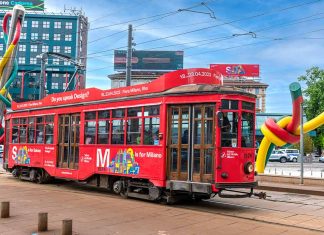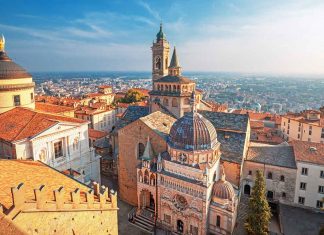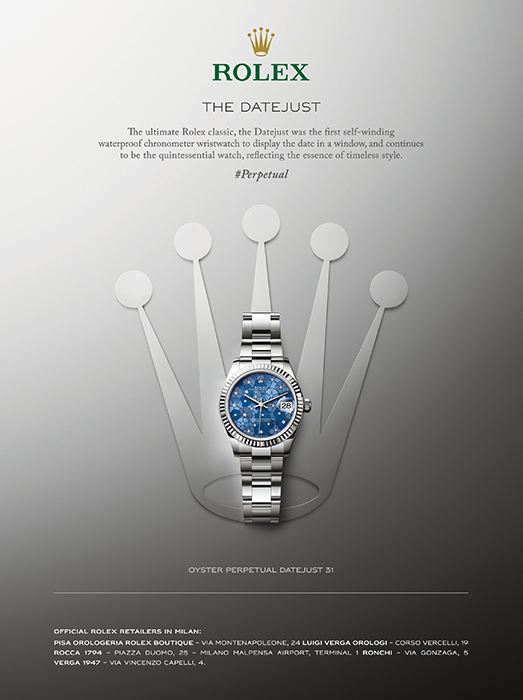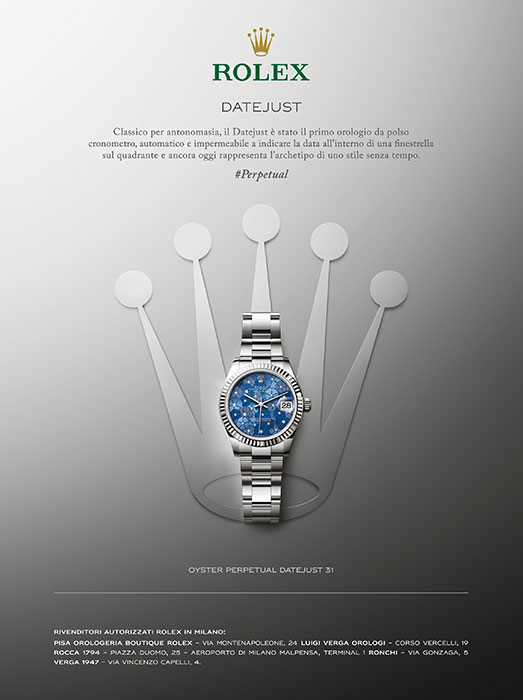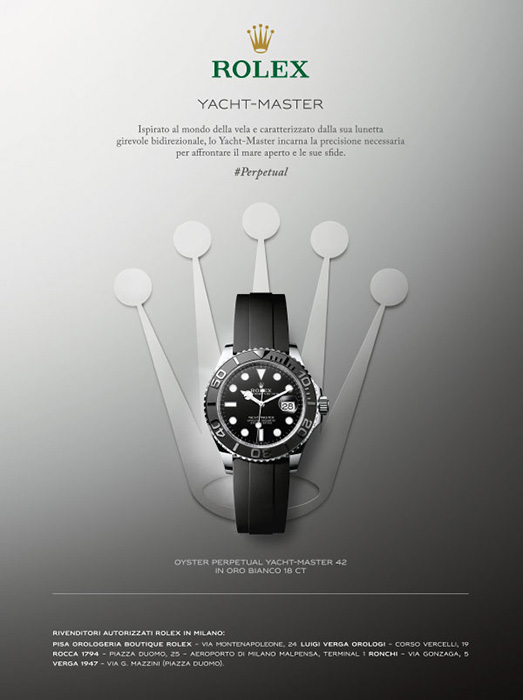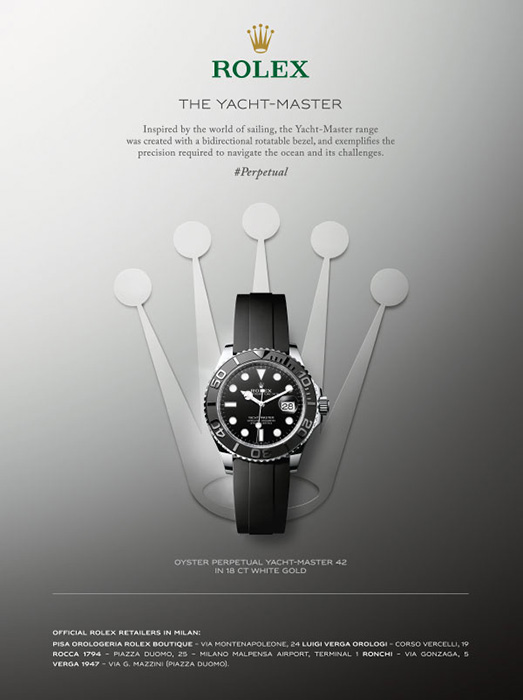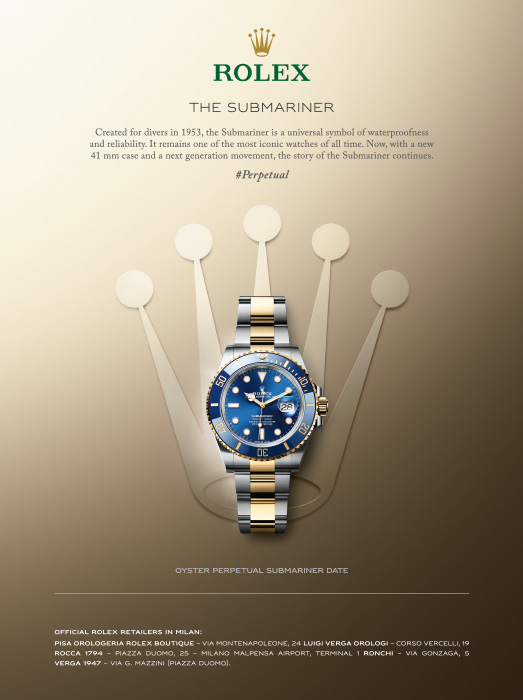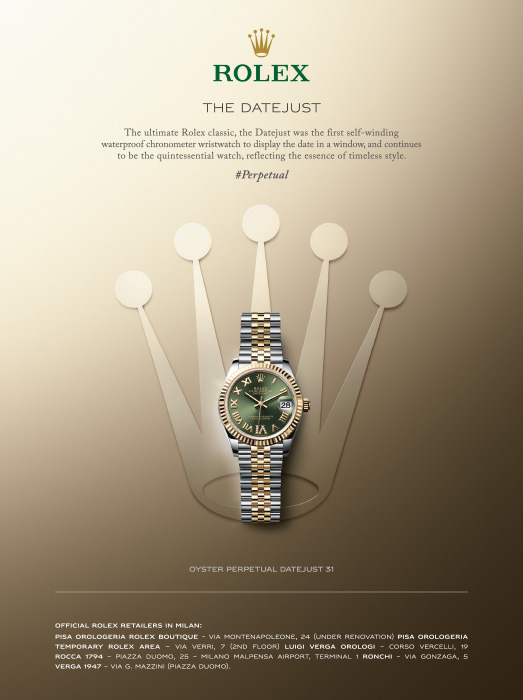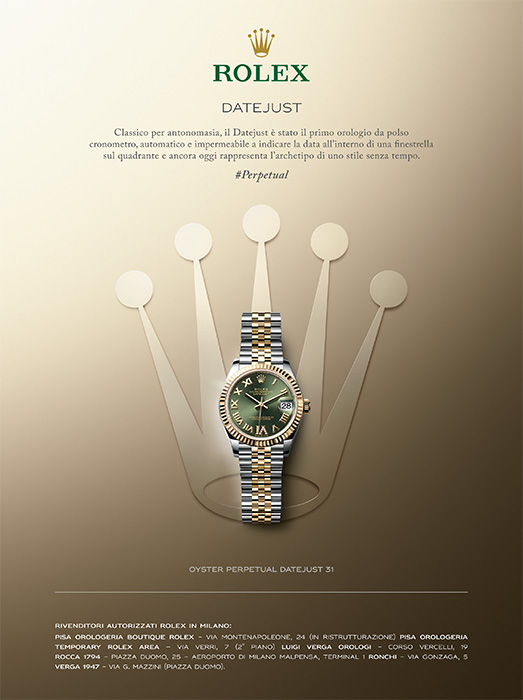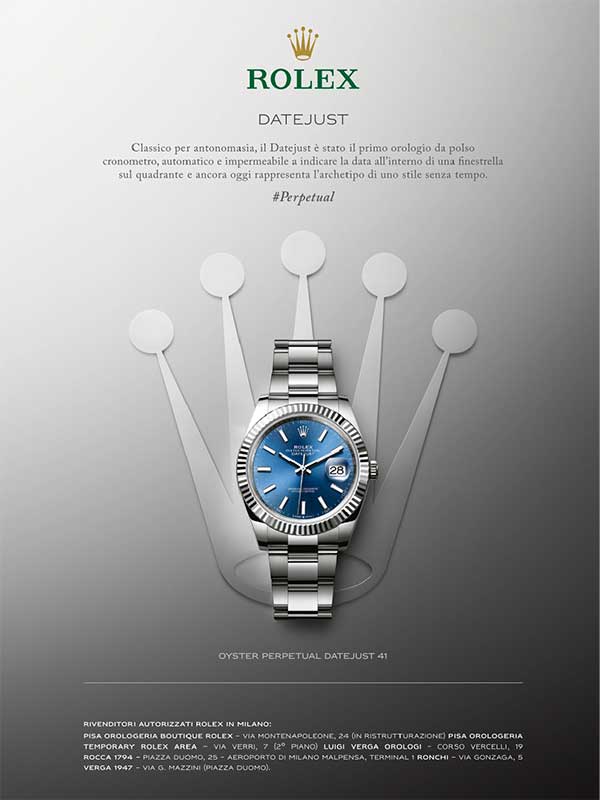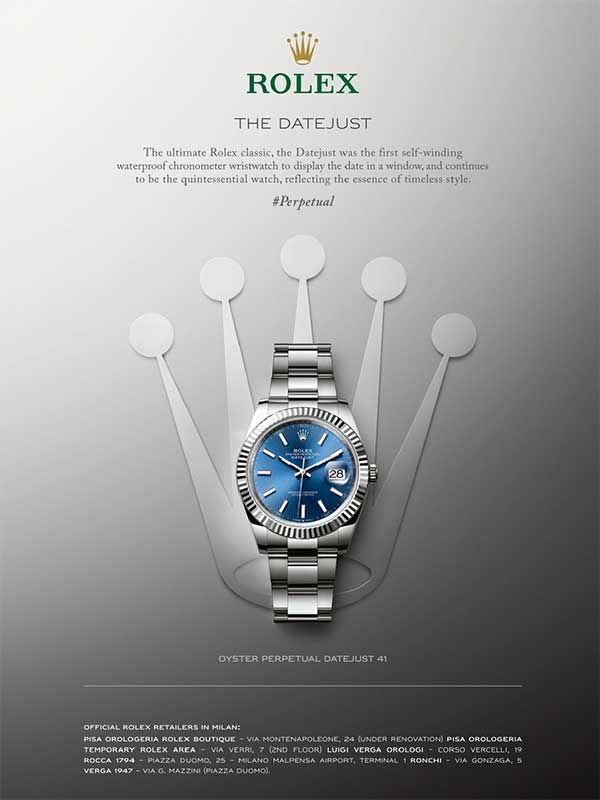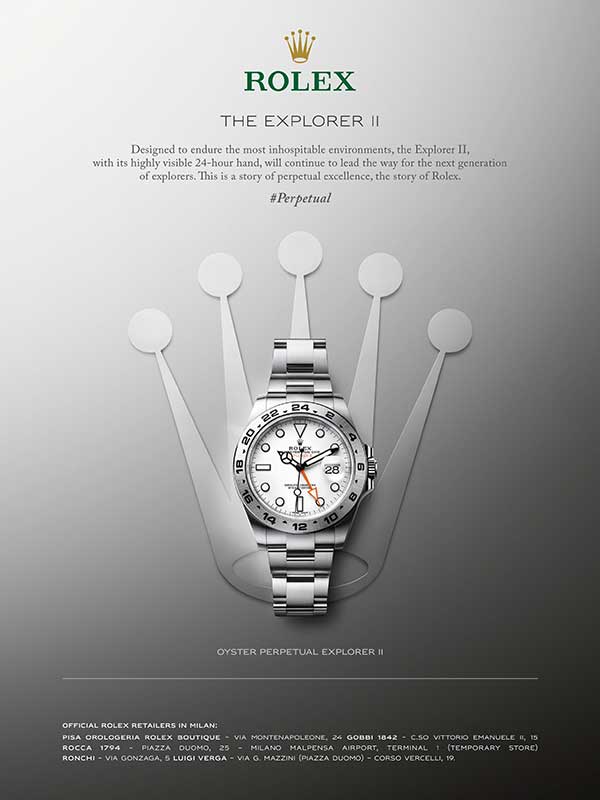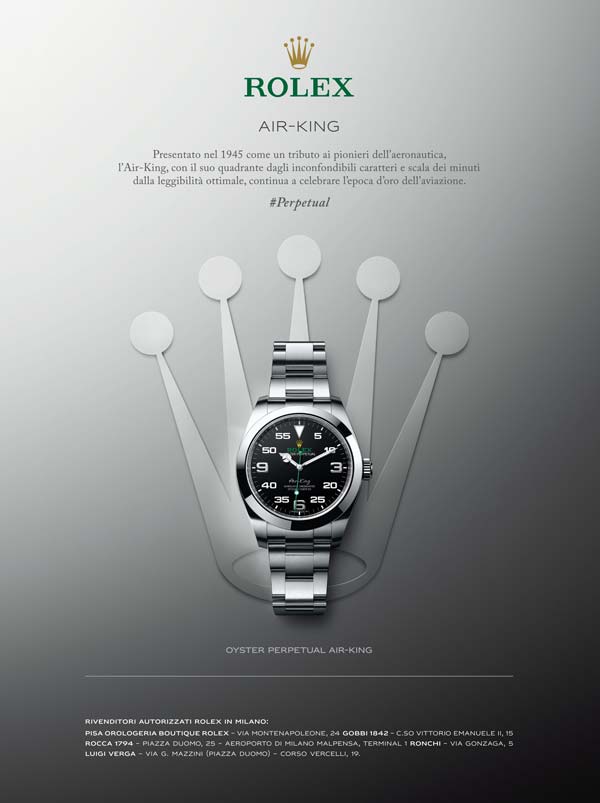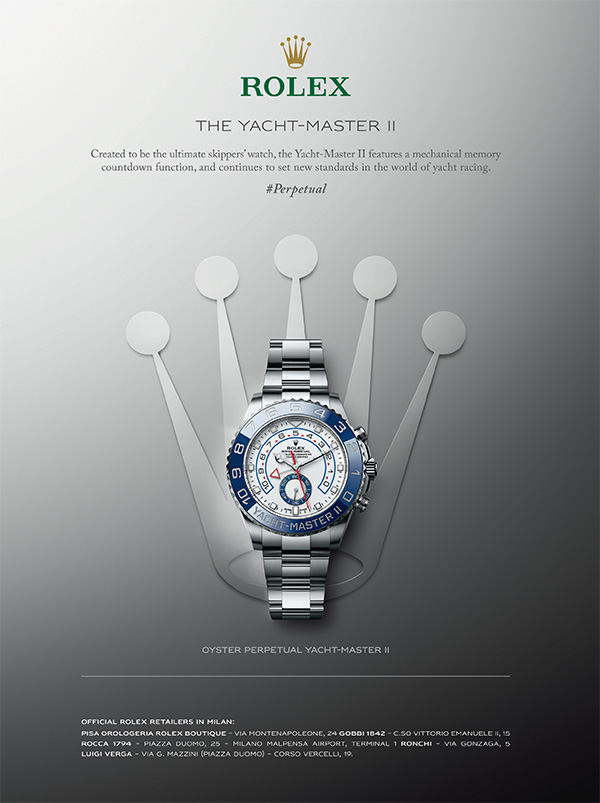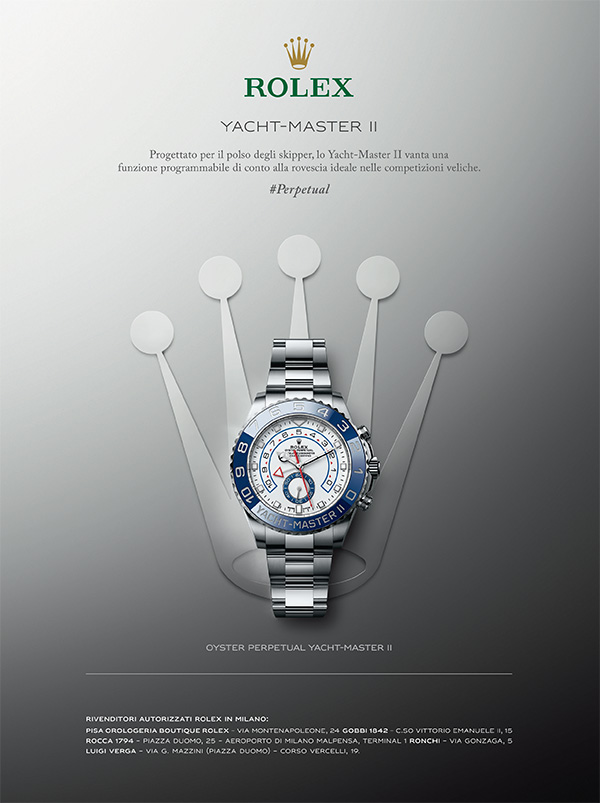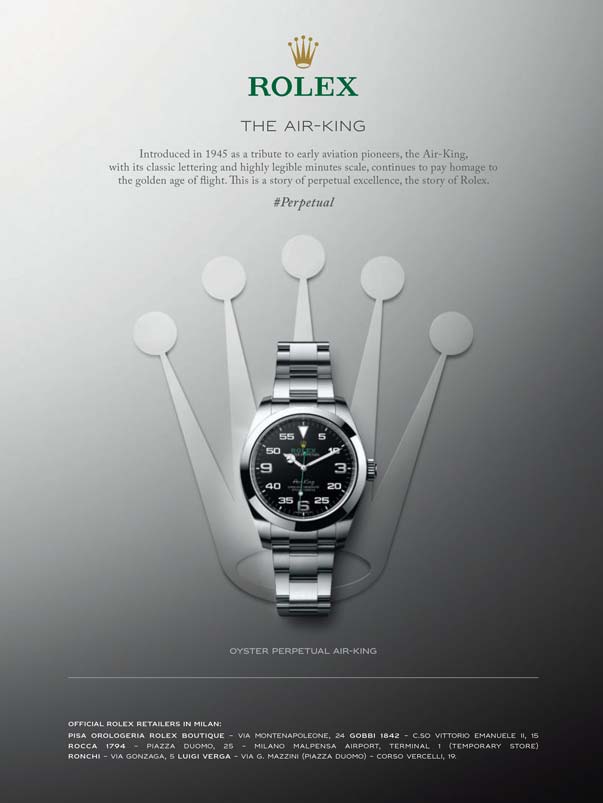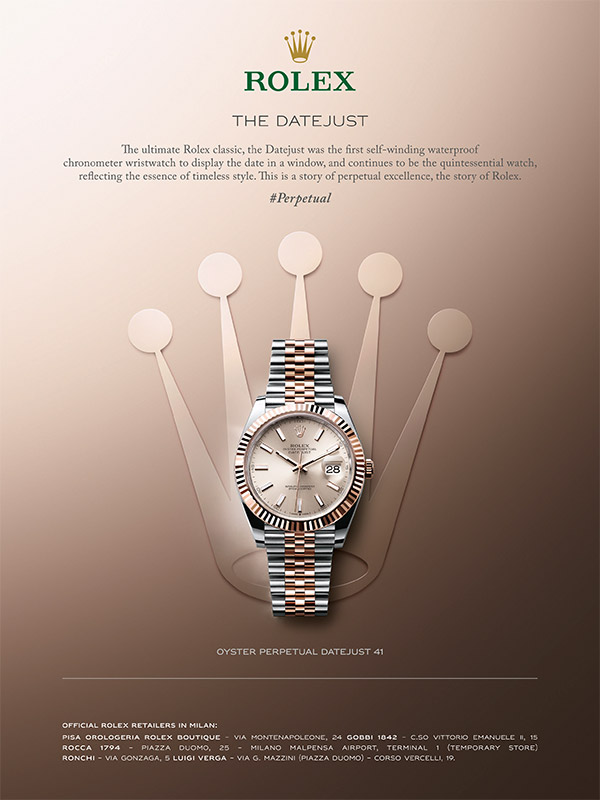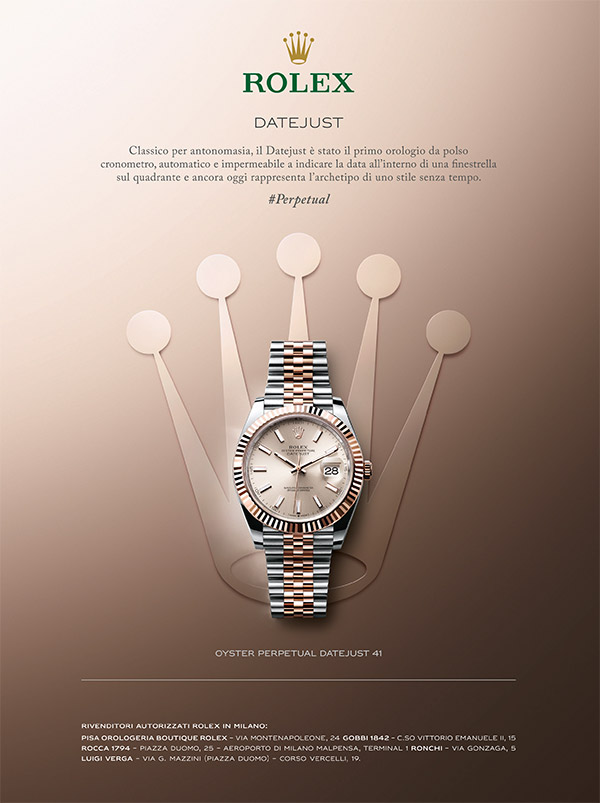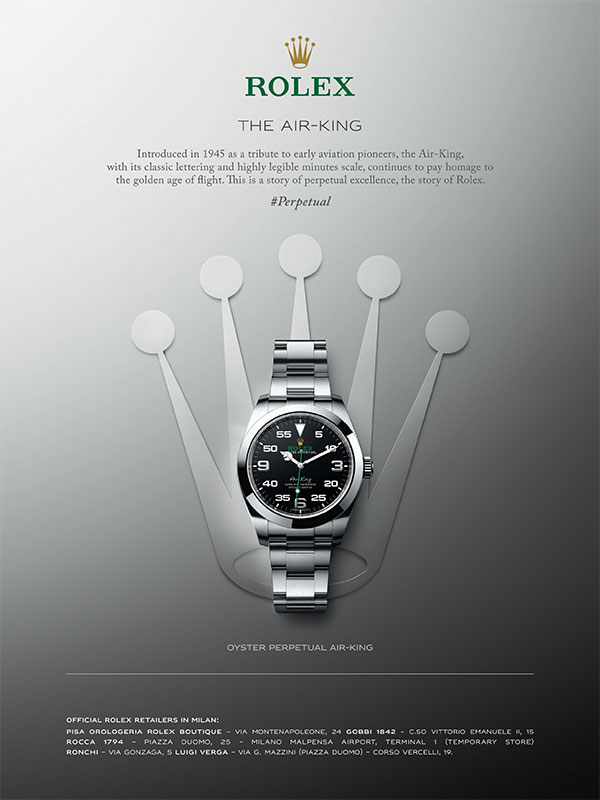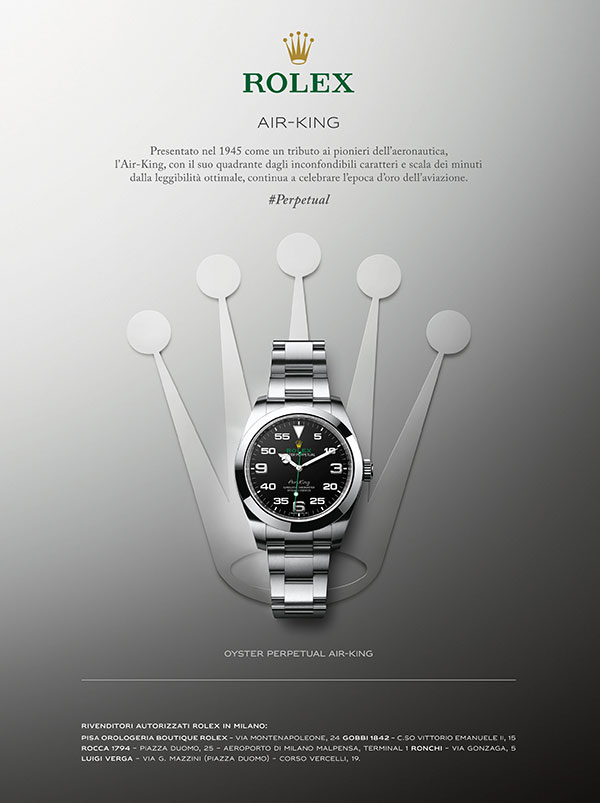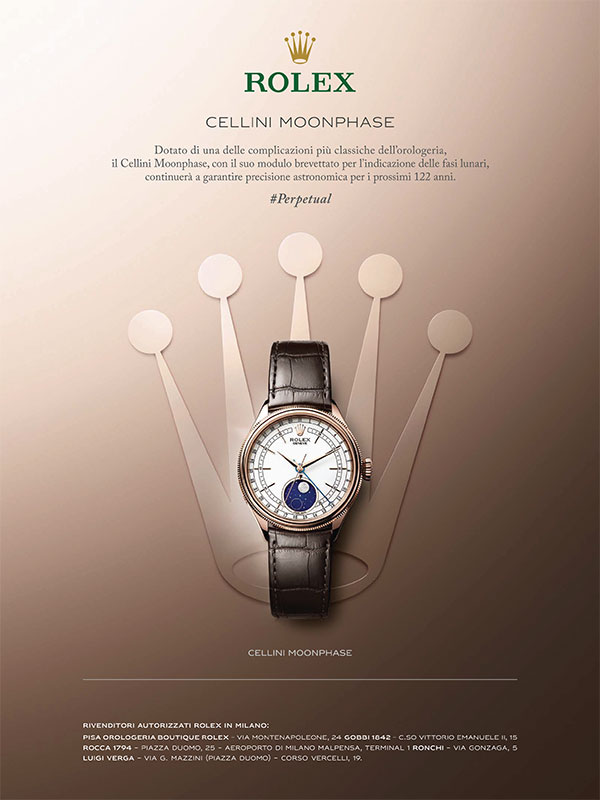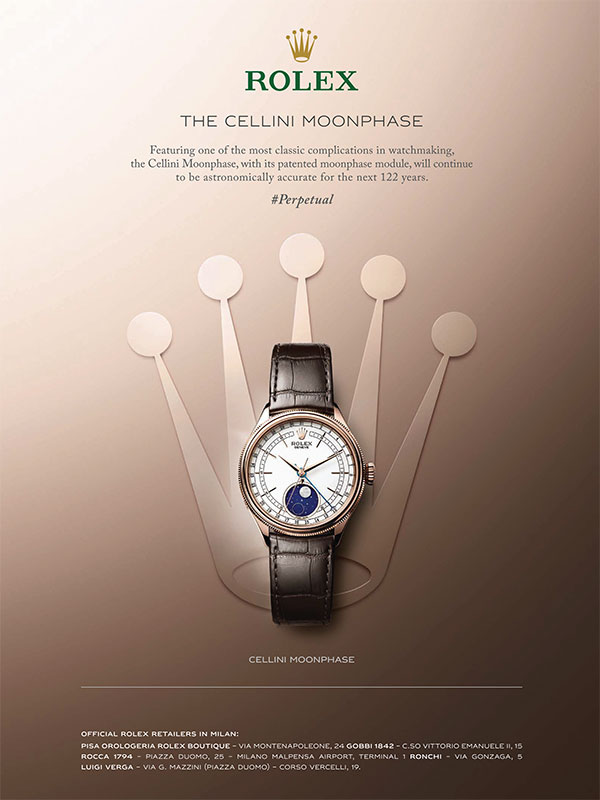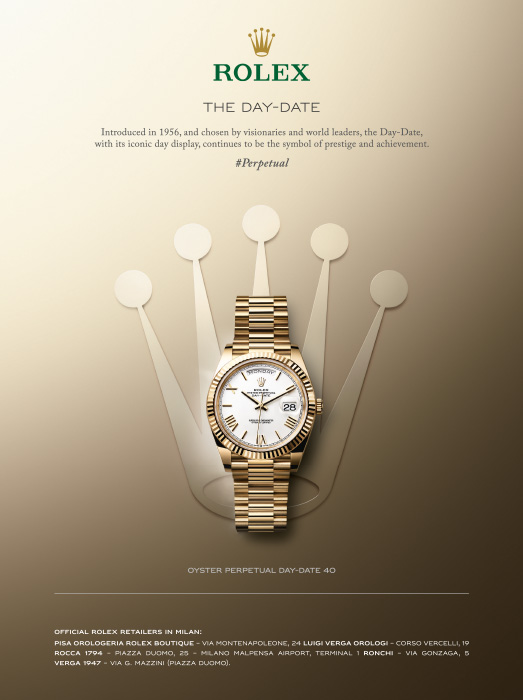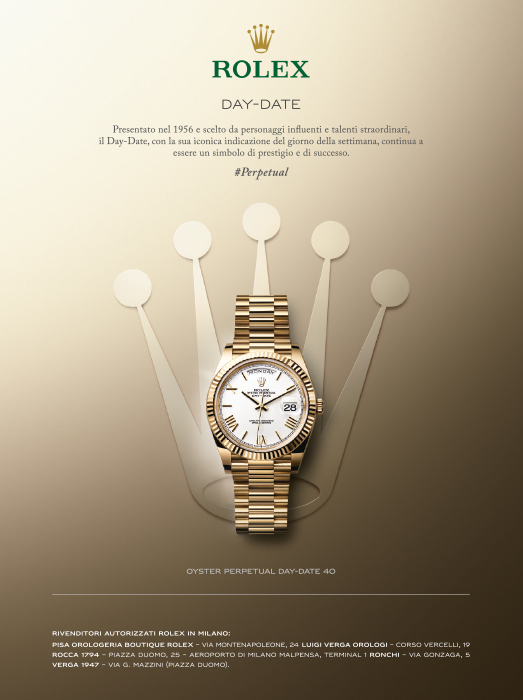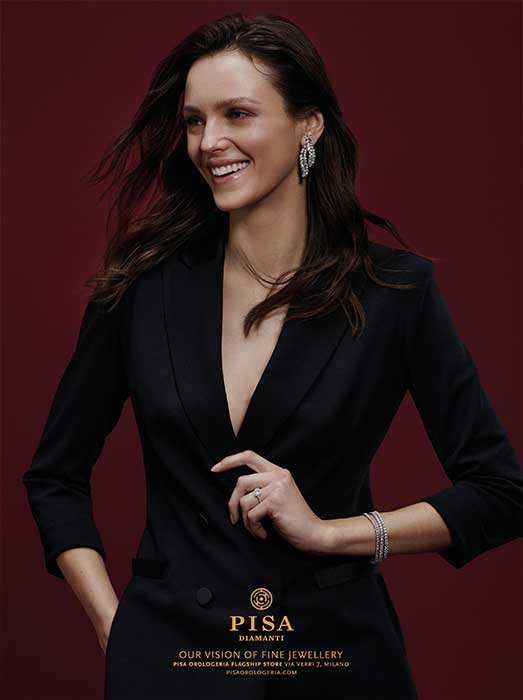
The new manager of the Four Seasons, Mauro Governato, appointed to the position in 2015, has no doubts: he knows that ‘his’ hotel is a reference point, one of the standouts among the addresses that dictate the standards for the others. He knows that the first reason for choosing Four Seasons Milano is that this hotel, ladies and gentlemen, is the Four Season, boasting all the glamour for which the trademark is renowned throughout the world. The second is that this is Italy meaning that it comes as no surprise to learn that, in the Nineties, a former 15th century convent was converted to house the Four Seasons Milano. In fact, thanks to skilful renovation work, both its interiors and exteriors reflect its storied past – frescoes, cloisters, columns and vaulted ceilings are commonplace. The third reason is that this hotel is located in the heart of the fashion district, between via Montenapoleone and via della Spiga and, in particular, in that via Gesù considered by many as the ‘Italian Savile Row’, known principally for its traditional bespoke tailoring for men, a high-end fashion Mecca lined with a fantastic array of stunning boutiques where quality and sky’s-the-limit standards are the order of the day.
In short, “this is an hotel that has haute couture and glamour in its DNA, and all of our initiatives are targeted at reinforcing this mission”, says its newly-appointed manager, a native of Piedmont who, over the past 22 years, has travelled across five continents, managing several of the most prestigious hotels of the Group (including the legendary George V in Paris).
In the heart of a vibrant city
Mauro Governato already knew Milan because it was here, during the late Eighties, that he began his career in the world of hospitality, at a time when Gualtiero Marchesi was the undisputed king of Milanese gastronomy. Now that he has returned to the city, in this year marking the advent of Expo, he enthuses about having rediscovered “a magnificently vibrant city, a small New York which is truly worthy visiting: the public transport network has been upgraded, loads of new shops have opened and the city’s parks are increasingly more livable – over the coming years, Milan is definitely set to become a world-class international destination“. And, there can be no doubt that someone like him, who has spent twenty years of his life between Hong Kong and Europe, really understands the true meaning of the word. “I also believe that we are finally ready to overcome our former, somewhat rather ineffectual approach to tourism and to re-launch Milan as a real leisure destination, also reconfirming it, as has always been the case, as an indispensable stopover for business travel”, says Governato.
Governato says that he loves “Milan’s ability to create events, from the Fuorisalone, associated with design to its Fashion Weeks, to compensate for a tourist attraction which, among other things, is only apparently less appealing than that that of Rome, Florence or Venice. And, once a choice has been made to come to Milan, the manager obviously has no doubts about where visitors should stay. “I am honoured and electrified at the idea of helming this establishment which I consider one of the most beautiful Italian hotels: it is ideally situated just moments away from via Montenapoleone, a street that the world envies us; it boasts a totally awe-inspiring location, not just from an architectural point of view; it is located in the heart of the financial and business district, but, once its doors have been closed, it is also an oasis of tranquility. Additionally, it also offers impeccable service and a seamless, low-key approach to luxury, a typical Four Seasons’ characteristic.
Supremely high standards
The manager says that he wants a hotel that is “refined, elegant and innovative”, a place where its members of staff continue to “feel proud to represent the Four Seasons trademark, renowned for its international savoir faire“ The idea”, adds Governato, “is that guests feel that their time at the hotel has been “well spent” and “that they can count on us to fulfill their every desire and need, in the certainty that we will be able to orient them in the right direction and provide assistance, to the very best of our abilities, without ever taking anything for granted.”
From the manager to the concierge, from the chef to the Spa staff, from the hotel’s personal shopper to its butler (on request), all the personnel employed by the hotel are committed to guaranteeing visitors discreet, authentic luxury, no matter from which part of the world they come from or to which culture they belong. As things presently stand, the manager tells us that, traditionally, 25% come from the States, where the Four Seasons trademark is an institution, 15% from the Middle East, 15% from Russia and the Far East and 5% (a figure that is growing steadily) from South America, Brazil and Mexico. To welcome this global melting pot of foreigners, the majority of the hotel’s personnel speaks numerous languages. But since no hotel can really be a good place to stay if it does not express its own cultural heritage, the Four Season also has a well-established rapport with the Milanese. Years ago, it was the first hotel in the city to launch the idea of a Sunday brunch which has now become a cult. This means that here you can now meet not only Milanese VIPs from the world of finance and fashion but also professionals and locals who enjoy patronizing the stunning venues of the Four Seasons for a business lunch or an aperitivo. Because, yes, there’s, obviously fashion and design, culture and even football, but among the many good reasons to visit Milan, one should not forget its unparalleled cuisine, for which, among other things, the rest of Italy is also renowned. “It’s not only a question of restaurants”, says its manager, “but also about places like Peck, one of the most sought-after gastronomic addresses in the world.”
It goes without saying, that even where this is in question, the Four Seasons aims to represent the best of Milan and Italy.
(Also) a gastronomic destination
Since 1 May 2015, coinciding with the opening of an Expo, at which chefs have been assigned an important role, the Executive Chef of Four Seasons Milan is now officially Vito Mollica: aged 43, he was born in Southern Italian but grew up on the outskirts of Milan. Already the proud recipient of 1 Michelin star, Mollica is also the Executive Chef of the Four Seasons in Florence. A dual appointment which “he believes will serve as an additional stimulus”. Continuity in the kitchen at Milan will be guaranteed by his legendary right-hand man Marco Veneruso.
Mollica helms a team of 28 staff in Milan (and 36 in Florence): “ because”, he says, “it’s important not to forget that cooking is all about team work and not simply about its chef.” He also says that in the kitchen “although the discipline required to do things well is a key factor, respect also plays an important role because good food stems from good relationships.”
His initiation in the kitchen began under maestro Gualtiero Marchesi. However, as time went by, he experimented by working at various restaurants, of different rankings, without any form of snobbery. While he talks, getting up, from time to time, to greet several of his favourite regulars, he regales us with an anecdote that explains who he is, surprising us with his disarming simplicity. Aged just 24, Mollica was put in charge of the kitchen of a hotel in Amsterdam. While working there, it so happened that a number of big names in the restaurant industry dropped in for dinner. He was curious to find out what they thought about his menu and, after some hesitation, the maitre truthfully told him what the big-wigs had said: “They said that they wouldn’t even hire you to prepare their breakfast eggs”. Vito Mollica could have been offended, or even attempted to defend himself by saying “how dare they?”. However, on the contrary, he took their criticism to heart and, after about eight years’ work, now boasting a solid, well-earned reputation as a chef, he decided to hand in his resignation and start from scratch. He left for London to work as an intern at one of Europe’s most prestigious restaurants. Only after learning the secrets of cuisine from scratch and the importance of humility, did he start his journey at the Four Season in Milan in 1996. At that time, the kitchen was the domain of Sergio Mei, from whom, Mollica says, he learnt a lot.
“If you work at the restaurant of a hotel, you have to bear in mind that the customer’s needs, rather than your culinary talent, are key.” Do you find this frustrating? “On the contrary: because the beauty of cooking is all about giving people joy, not showing off your skills”. Mollica, who continues to make time to organize in-house training courses around the world, enjoys expressing his talent through the medium of simplicity and authenticity. “At the Four Seasons, breakfast has to comply with the highest international standards, enhanced by a few personal touches. However, when it comes to lunch or dinner, we can allow ourselves to choose Italian-style menus based on tradition and the flavours of local cuisine. Our aim is to become a destination within a destination, a concept that goes beyond the idea of a simple hotel stay. Each chef’s dream is that customers enter the restaurant with just one thought in mind: “Today, I’m truly in the mood to eat a risotto like the one that he makes.”
A one-of-a-kind Spa
But the Four Seasons is also a great place to go for those in search of a superior quality wellness experience. Inaugurated in October 2013, and opened to the public in February 2015, Patricia Urquiola redesigned and converted one of the most suggestive areas of the building into a Spa. The result is an exclusive, cocoon-like environment, where no detail has been left to chance, featuring beautiful old walls, soft lighting and a colour scheme reminiscent of human flesh, an urban sanctuary of luxury and comfort. Though not particularly large, its swimming pool is absolutely spectacular and its relaxation rooms, where you can let off steam in complete privacy, are the cherry-on-the-top of this stunning setting designed to offer visitors a truly regenerative experience: luxury, as is the case with the rest of the hotel, is based on a feeling of intimacy and attention to detail, rather than ostentation. Even in the choice of products, Spa Manager Jennifer Theiss pursues an objective based on quality and originality, with a nod to history and narration: “We only choose to partner with brands that fully express our values, our personality and our concept of wellness”, Theiss explains. “We are equipped to satisfy the most diverse approaches to body treatments, from the more relaxing type which appeals to an American public to a more energizing version favoured by our Russian clientele to an holistic approach based on oriental culture. You can enjoy the highly performing facial treatments offered by London facialist Sarah Chapman, the deeply soothing ones devised by iconic Swiss maison, La Prairie, known for using caviar and extracts of pure gold right up to the holistic blends of natural, chemical-free skincare products created by Australia-based brand Sodashi based on ethically-sourced oils and plants. The Spa has also recently introduced a line of exclusive, signature treatments by Tauleto made from the natural essence of wine and grape seeds, rich in potent anti-oxidants and anti-ageing properties: a choice linked to the history of the building, given that the Spa is now housed in the former cellars of the old convent.
“The idea”, explains the Spa Manager, “is not only to offer our guests a fabulous atmosphere but also treatments and products that are unavailable elsewhere. For this reason, in addition to cosmetics in the strict sense of the world, we also offer limited, personalized editions of St. Barth costumes or exclusive, logoed silk dressing gowns. The Spa boasts a permanent staff of 10 people plus an array of outside professionals: although treatments are only available subject to pre-booking, “we are also happy to accommodate last-minute bookings, as is commonly the case in a place, like a large hotel which, by definition is a transit area. Our staff are on-hand 365 days a year and we offer extended opening hours.” Because, above all, luxury means being able to satisfy a personal request on-demand.

